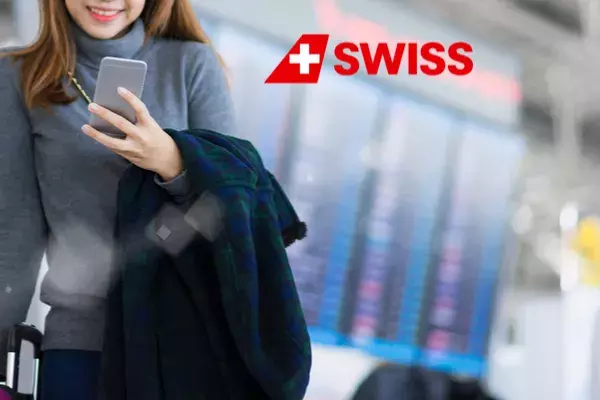10 May 2020 | Blog
Passenger confidence and industry recovery – an overview from 15below's CEO Nicholas Key
10 May 2020 | Blog
Passenger confidence and industry recovery – an overview from 15below's CEO Nicholas Key
“Passenger confidence will suffer a double whammy even after the pandemic is contained—hit by personal economic concerns in the face of a looming recession on top of lingering concerns about the safety of travel. Governments and industry must be quick and coordinated with confidence-boosting measures.”
Alexandre de Juniac, Director General & CEO, IATA, April 2020
This quote from the head of IATA really resonated with me. The challenges the aviation industry must overcome to enable passenger air travel again at anything like pre-crisis numbers are manifold and multi-layered. We as an industry must put passengers at the heart of this response. As de Juniac indicates, passengers will be hit by a “double whammy” of concerns about personal health during a flight and value for money. I believe passenger confidence will, in fact, suffer a ‘triple whammy’ – extending de Juniac’s first two threats to passenger confidence with a third: a fear of new processes, or fear of not knowing how to fly. Many passengers will be unable or unwilling to fly unless they understand the 'how to' – how can they navigate pre-travel health checks, airport passenger segregation and other new rules?
As referenced in Forbes’ Future Air Travel article, some industry experts are predicting that a “simple” process such as checking in for a flight could take “up to four hours and involving social distancing, sanitation of passengers and luggage, wider spaces for various lines and waiting to board”. New processes such as these will be widely covered in the global press, likely creating fear and anxiety for many passenger personas. How airlines manage and communicate these processes will be key to rebuilding passenger confidence.
In order to rebuild ‘Passenger confidence’, airlines, airports and other agencies must understand what passengers need in a post-COVID-19 world. First and foremost, passengers will need to feel they can trust their airlines, airports and governments to safeguard their health and address their concerns. But this is just the tip of the iceberg. Passengers must also be willing and able to navigate new regulations and legislation, understand and accept new cabin configurations, onboard safety procedures and immigration controls on arrival. Complex rules and processes are likely to vary according to destination, route and passport type and to change considerably over time. Therefore, the airline must understand the psychology of the passenger to address these potential stress points and build confidence to fly. Not only this, but the challenge will also be to tailor this amongst the myriad of cultures, ages and personas we need to include if we are to build the passenger numbers back again.
The common denominator in all these passenger confidence challenges is information. Getting relevant, accurate and timely information to different passenger types in a language they understand by a channel they are listening to is the only way to build back this confidence.
Here are 5-key steps to build passenger confidence through personalised communication of timely, relevant information to passengers:
1. Before a passenger gets anywhere near a flight they have to make a booking. There will likely be some concerns during this process, even if the passenger has now made the decision to fly. “How does this airline’s sanitisation policy differ from another’s? What if there is another outbreak in my destination – will my airline give me a refund or if I’m already mid-trip, will they get me home?”. The loyalty tables have been reset by COVID-19 - airlines must take this opportunity to build new loyalty through information on processes. Use abandoned cart technology and personalised marketing to reassure and provide creative options.
2. Passengers need their airlines to interpret the latest regulatory information specific to them and communicate this in a personalised way, via the channel they are listening on and at the time they need it, not before (when it will be missed), or after (when it is too late). Following 9/11, the security legislation changed rapidly (shoes on/shoes off, liquids allowed/liquids not, addition pre-screening required, or not etc.), sometimes on a weekly basis. Until the major markets and IATA lead countries with standardisation this is inevitable, however, until this point, the airline must handle this situation with responsive and flexible processes and most importantly, information.
3. Once armed with this personalised information, passengers will have to take some action; complete a form, give permission for personal data to be accessed or navigate to a particular area for pre-boarding at the airport with similarly categorised passengers (antigen vs antibody vs vaccination vs. nothing for example). Allow them to do this with seamless, straightforward technology, self-serve is key here.
4. On-board, the passenger’s experience will likely be very different from what they are used to. Regardless of the whole middle-seat question, crew looking like they’ve come straight from a sci-fi film and additional warnings and regulations about the use of face-masks, communal facilities and onboard service will likely unsettle passenger already on edge for potentially their first flight since the crisis began. Communication to prepare the passenger for these changes is critical as is addressing concerns such as “what if I’m travelling with an infant? What if the guy sat next to me doesn’t stop coughing? What if...? What if...? What if...?”
5. Over-communication during the recovery phase is OK. Your passengers will understand and appreciate what you’re trying to do. If you get the personalisation, accuracy and timing right, there’s no such thing as over-communicating anyway.
An industry challenge, not that of just one airline
As governments start to permit and even promote travel within domestic and local geographies or between “friendly” (read safe) partner countries, bringing vital impetus to the industry, it does at the same time risk creating silos in an industry which needs to stand as one.
A global collaboration led by IATA will allow airlines to stabilize the advice and regulations being given to passengers and increase overall passenger confidence levels at a faster rate than by tackling these problems as individual airlines, airline groups or alliances. An industry-wide crisis requires an industry-wide response and it is my opinion that IATA must lead this.
With the right approach – and one that is consistently supported by everyone across the industry – I believe we can build passenger confidence resulting in more people flying sooner.
Enough of the theory – what do we need to be doing today?
As a key conduit between airlines and their passengers, it is 15below’s responsibility to understand and address how passenger confidence can be rebuilt from these three perspectives:
- Passenger safety – "If I fly will my health be safeguarded?"
- Personal economic concerns – "Can I afford to fly? Should I do something else with my reduced disposable income? If something goes wrong outside of my control will I get my money back?"
- Flying practicalities – "How do I fly?"
Early in the crisis, 15below created a cross-functional COVID-19 Crisis Response team to give the extra support our customers need during this time. From Ryanair to British Airways, JetBlue to Cathay Pacific, Jetstar to Lufthansa, our systems lit-up processing cancellations, refunds, vouchers and most importantly pro-active communications to passengers, providing them with personalised information on choices, options, latest status information and government restrictions. The Crisis Response team was created to respond quickly to the new needs of the industry, share guidance and best practice amongst airlines and ensure understanding the passenger and using technology to manage them in a personalised way was the priority.
We’ve learnt a lot from the last two months, some of which we will do differently next time, some of which we will now feed into our core product for the benefit of all.
As we evolve through the crisis this team is evolving too, now switching attention away from the high-volume cancellations, refunds and voucher processing and looking at the recovery phase more closely. The team are helping airlines to build customer confidence and personalise their response to some of the passenger challenges discussed here - getting them flying again as soon as possible.
Nicholas Key, CEO, 15below, wishing he was at 35,000 ft. 10th May 2020
The Author
 A long-suffering airline passenger, baggage loser and flight delay regular, Nicholas Key co-founded 15below in 2000 in a bid to drive improved efficiency and customer service across the travel industry. Over 20 years, Nicholas has built the company to become a globally recognised ‘best-of-breed’ passenger communications provider, working with some of the world’s top airlines, including Ryanair, JetBlue, Cathay Pacific, SWISS, Qantas, and British Airways.
A long-suffering airline passenger, baggage loser and flight delay regular, Nicholas Key co-founded 15below in 2000 in a bid to drive improved efficiency and customer service across the travel industry. Over 20 years, Nicholas has built the company to become a globally recognised ‘best-of-breed’ passenger communications provider, working with some of the world’s top airlines, including Ryanair, JetBlue, Cathay Pacific, SWISS, Qantas, and British Airways.




